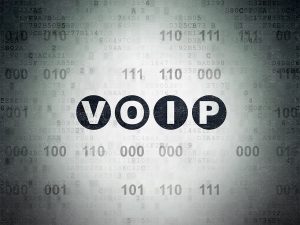What is VoIP? Voice (Vo) calls that are routed over online networks using the Internet Protocol (IP). IP serves as the backbone of the Internet and used to ferry e-mails, instant messages and web pages to millions of computers and smartphones.
How does VoIP work? VoIP services convert your voice into a digital signal that travels over the Internet. When you are calling a regular phone number, the signal is converted to a regular telephone signal before it reaches the destination. VoIP can allow you to make a call directly from a computer, by using a special VoIP phone, or a traditional phone connected to a special adapter. In addition, wireless "hot spots" in locations such as airports, parks, and cafes allow you to connect to the Internet and may enable you to use VoIP service wirelessly.
Why go VoIP? The number one reason to use a VoIP phone service over a traditional phone system is that it is cheaper. VoIP reduces the cost of equipment, lines, and maintenance. Why pay for phone service when you can use the internet for the exact same service free? 
What features do VoIP providers offer? VoIP providers offer all of the features that traditional phone companies do and much more:
What are some advantages of VoIP? VoIP often includes features and services that are not available with a traditional phone, such as Follow-Me and Find-Me remote extensions, which allow mobility of employees. Additional features such as Voicemail to e-mail, Automated Attendant, and Disaster Recovery help to show that VoIP is designed to provide the personal attention unmatched by traditional phone companies.
Is VoIP scalable with my business? Yes! Rather than having to invest in costly new hardware, adding new extensions to a VoIP network is typically as easy as connecting your SIP-enabled phone to the network and tinkering with some software settings – and if you use a phone that's certified for use with your provider or software, it could be as simple as plug and play.
Does the FCC Regulate VoIP? In June 2005 the FCC imposed 911 obligations on providers of “interconnected” VoIP services – VoIP services that allow users generally to make calls to and receive calls from the regular telephone network. You should know, however, that 911 calls using VoIP are handled differently than 911 calls using your regular telephone service. In addition, the FCC requires interconnected VoIP providers to comply with the Communications Assistance for Law Enforcement Act of 1994 (CALEA) and to contribute to the Universal Service Fund, which supports communications services in high-cost areas and for income-eligible telephone subscribers.
What if I call 911? Will my call get through to an emergency dispatcher? Yes. The Federal Communications Commission (FCC) mandated that as of November 28, 2005, all VoIP providers must provide Enhanced 911 (E911) service to new customers. E911 is the most advanced 911 service available and is able to locate your phone number and location immediately when you call 911. When you sign up for VoIP service, you will enter the address from where you will be making your calls. If you move or take your VoIP service with you when you travel, you can simply update your address online with your VoIP provider for 911 purposes.
What equipment do I need? VoIP does require a high-speed (broadband) Internet access connection in order to be possible. DSL or cable services will work just fine. Specific equipment will vary on the VoIP service provider. Some don't require anything more than having a headset combo or desktop microphone. Other companies have special adapters, which connect to your high-speed modem and enable you to use your regular telephone.
What happens when the power goes out? While some VoIP service may go down with power outages, Tampa provider, ICS, and TeleVoIPs, has designed high availability and fault tolerant cloud solutions for business continuity, including:
Disaster Recovery- Guaranteed high availability through our redundant services.
Disaster Redirect- Instantly reroute calls to another office location or to an external line such as a cell phone.
Automated Failover- TeleVoIP services can be integrated with CallStar to provide an automated live failover to CallStar's answering service.
Is VoIP right for you? We think so, but if you have other questions or want to learn more feel free to contact us at Contact us today!

© 2024 TeleVoIPs, LLC
All Rights Reserved